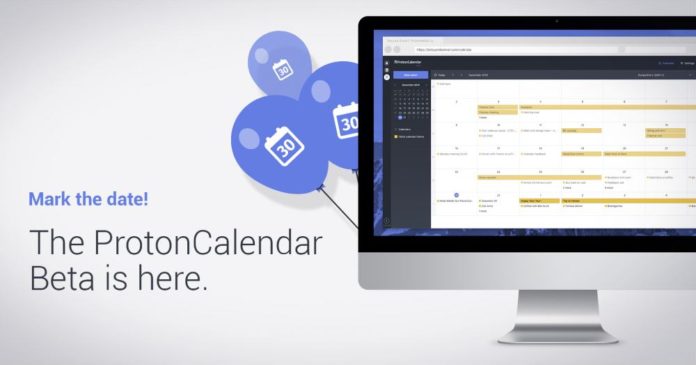
Your internet connection and email are not the only information you should strive to keep private. The data in your calendar should also be for your eyes only, and so ProtonCalendar has been released just before the New Year.
Still in beta, it comes from the same company that brought us ProtonVPN and ProtonMail — so yes, these guys (and gals) know what they’re doing, making sure all of us get to benefit from their highly secure solutions. Perhaps more important is the fact they make their products totally private so even their administrators don’t have access to your calendar. All the data in the database is encrypted and only you get to see it.
But I’m getting ahead of myself. Let’s take a brief look at this remarkable product that has the potential to change the way people think of their calendar entries.
The dates that matter…
The main premise behind ProtonCalendar is that you should be the only one that can access your calendar (except if you decided to share it with someone). Google shouldn’t know that your child or significant other has a birthday next week; cause when it learns that piece of information, it will start bombarding you with “gift idea” ads. And that, we think, violates our privacy. Sure, it’s the algorithm rather than another human being that is looking at that data, but still… we haven’t added that date to the calendar so that Google could turn it into actionable information that could be traded on the market.
In contrast, ProtonCalendar is the fully encrypted calendar app that keeps your data totally private.
How ProtonCalendar works?
The service uses end-to-end encryption to keep all your events’ sensitive information private and secure. This includes the event title, description, location, and participants for every event — which are the data points that first get encrypted on your device before they reach ProtonCalendar servers, so that no third party (including ProtonMail) can see the details of your events. Only you will know your plans.
Here’s how the Proton folks pitch their latest offering:
Our calendar stops private companies from spying on your schedule. For our users with heightened security needs, ProtonCalendar will prevent authoritarian regimes from seeing who you are meeting with and what you are doing. It does this by keeping the details of all your events encrypted while they are stored on our servers. Even in the unlikely event of a breach, your agenda will remain secure.
Existing ProtonMail users with a paid plan can start using the ProtonCalendar beta right now. They will see it once logging into their ProtonMail account in the sidebar. From there, they can add new events, see existing ones and overall manage their time without worrying that someone’s watching over their shoulder. In fact, the company claims that no other calendar keeps as much data private as ProtonCalendar. And yes, we believe them.
The service is easy to use and, in most cases, it feels like Google Calendar so there is nothing new to learn in order to start using ProtonCalendar.
The road ahead…
ProtonCalendar is dubbed as just the latest project in Proton’s mission to create a more private Internet. As mentioned above, the company has its own VPN and email services, and soon — it will allow users to privately save and share documents to the cloud with ProtonDrive.
At the moment, ProtonCalendar beta can be used to create and delete events, set reminders, and have your events repeat every day, week, or month. It is still a beta product with additional features — such as the ability to share your calendar with other ProtonMail users and send event invites to anyone, even non-ProtonMail users — coming in the future. It will also make scheduling as easy as a single click by letting you sync events in your ProtonMail inbox with ProtonCalendar.
While ProtonCalendar is only available in the web version of ProtonMail for now, iOS and Android apps are in development as we speak and should launch later this year.
In the meantime, the company is inviting users to submit their feedback. If you have a paid ProtonMail account, make sure to send them your two cents via the bug report feature inside the web app. Together, we can create a viable (and more secure) alternative to corporate offerings from Google and Microsoft. And that, we think, is a noble cause.

